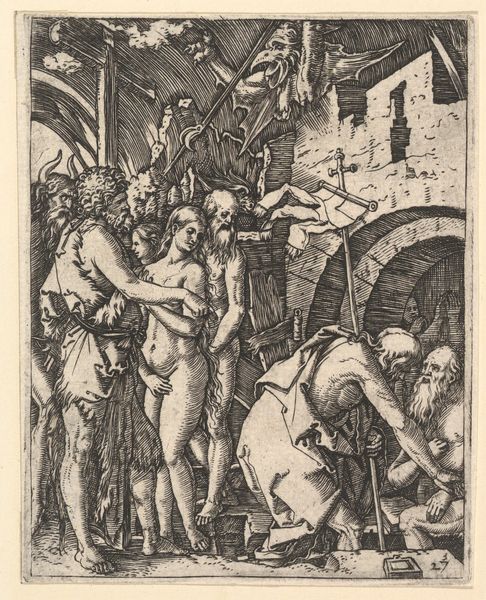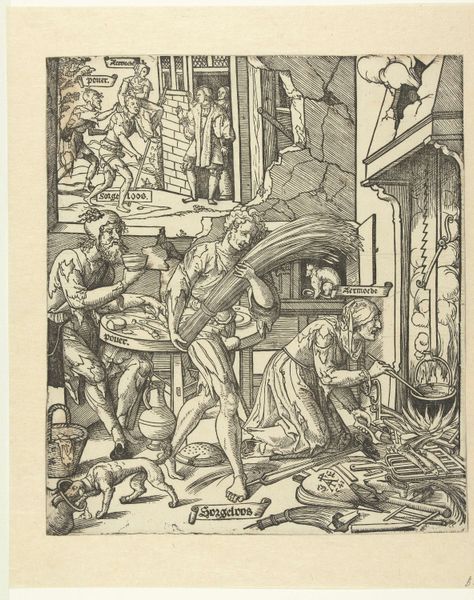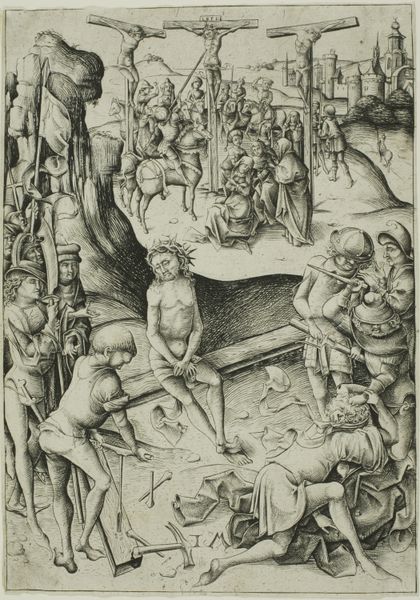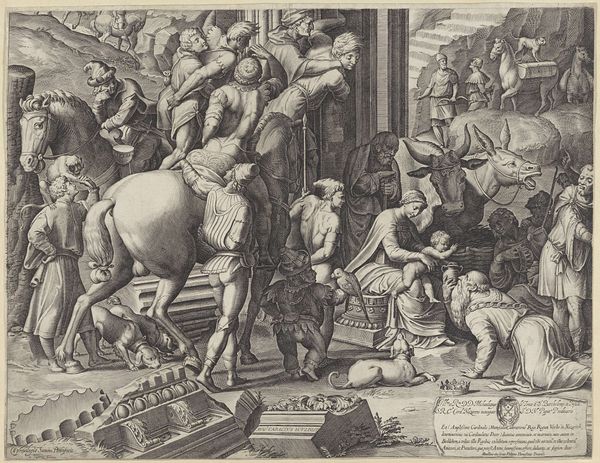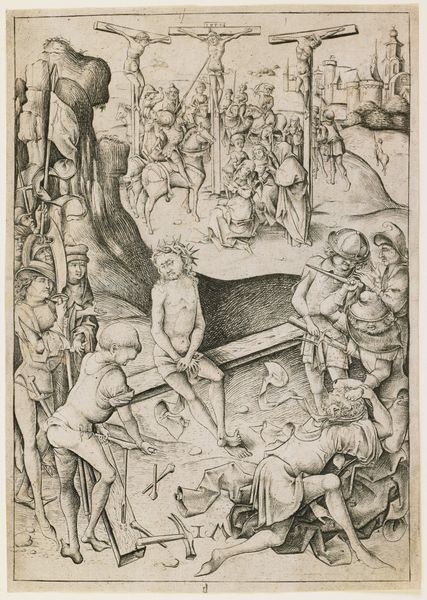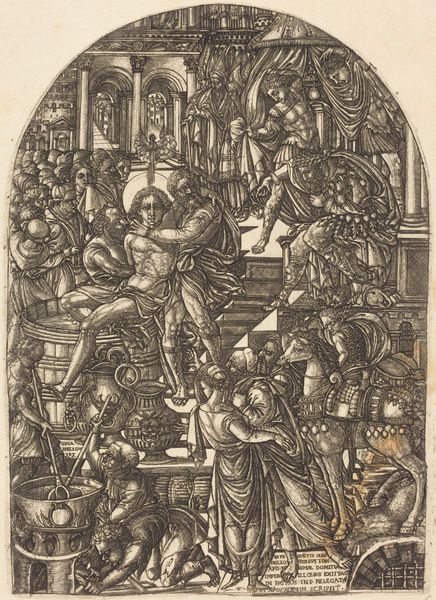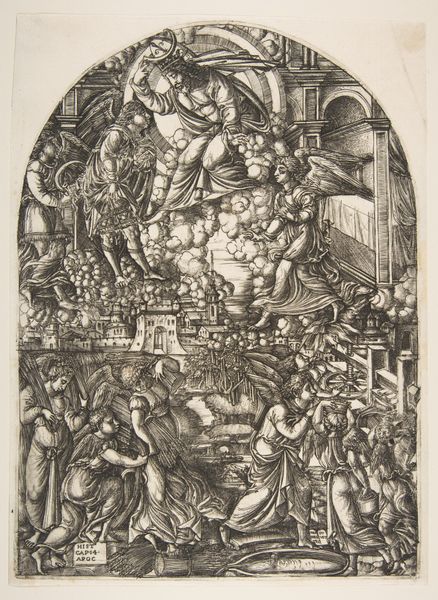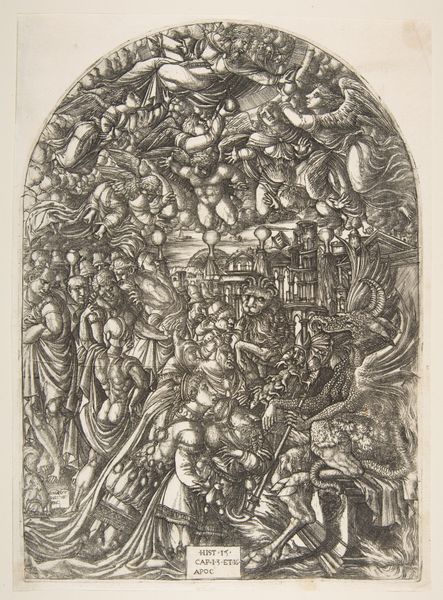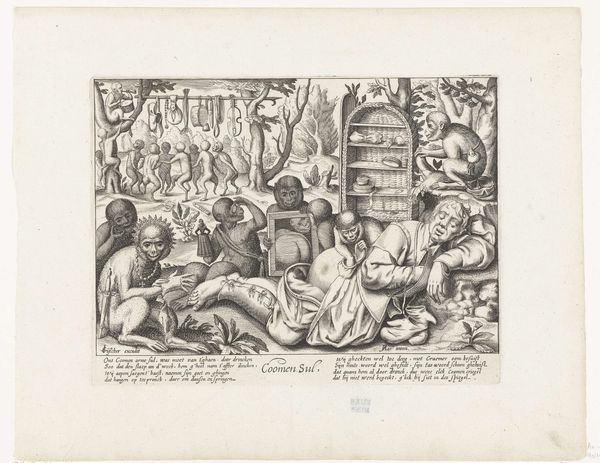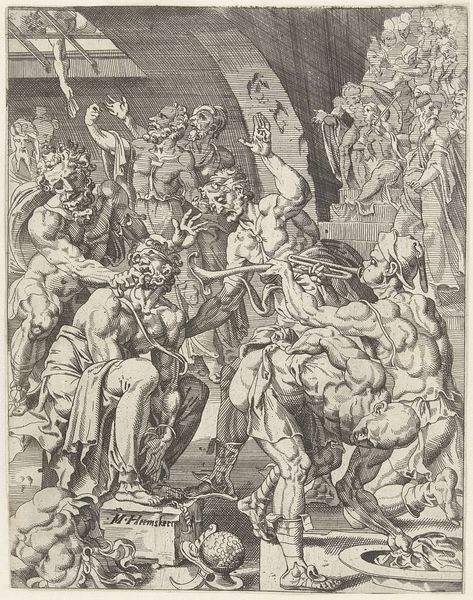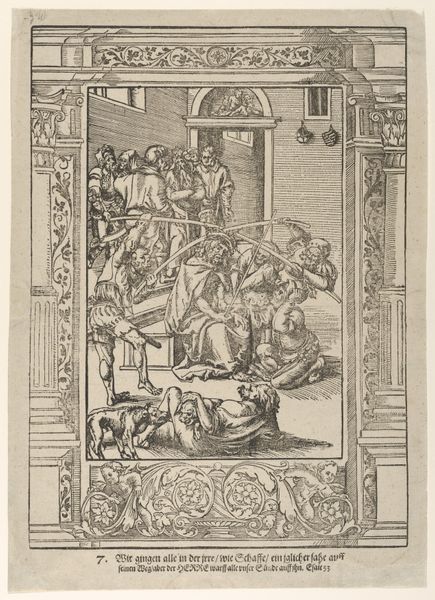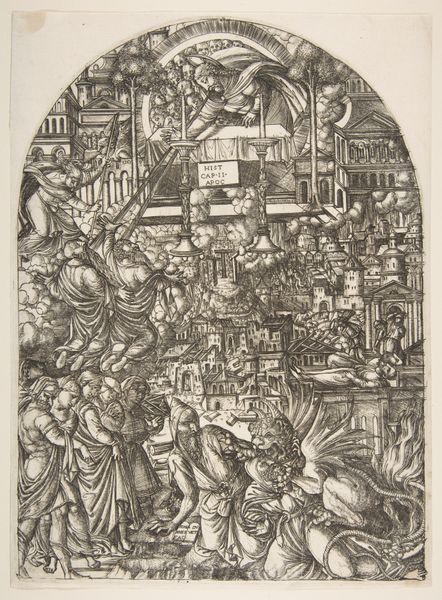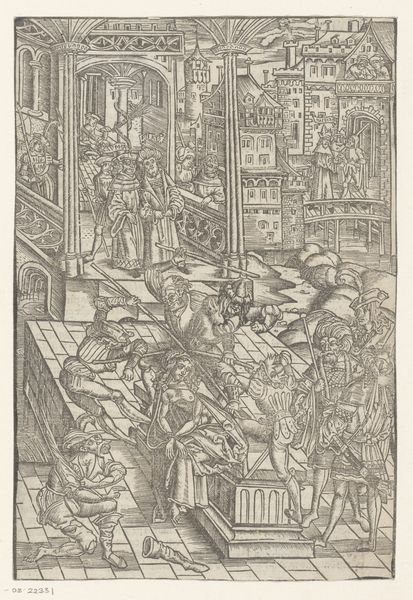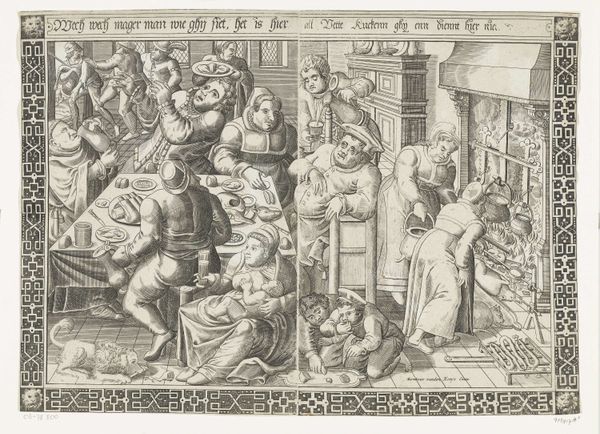
print, engraving
narrative-art
figuration
line
genre-painting
history-painting
northern-renaissance
engraving
Dimensions: height 450 mm, width 296 mm
Copyright: Rijks Museum: Open Domain
This print, "Vette keuken en de magere keuken," likely made in the 17th century, uses the intaglio process of engraving to deliver its satirical message. The artist would have used a tool called a burin to manually carve lines into a copper plate. Ink is then forced into these lines, and the plate is pressed against paper, transferring the image. The stark contrast between the dark lines and the white paper heightens the contrast between the “fat kitchen” above, overflowing with food and revelry, and the “lean kitchen” below, where scarcity and hardship prevail. Look closely at the level of detail achieved, like the hanging pots or the textures of clothing. The choice of engraving, a medium capable of mass production, underscores the socio-economic commentary at play. The print serves not only as a work of art but also as a form of social critique, distributed widely to spark conversation about wealth disparity. It demonstrates that material choices and processes are integral to understanding the depth of meaning in artworks.
Comments
No comments
Be the first to comment and join the conversation on the ultimate creative platform.
